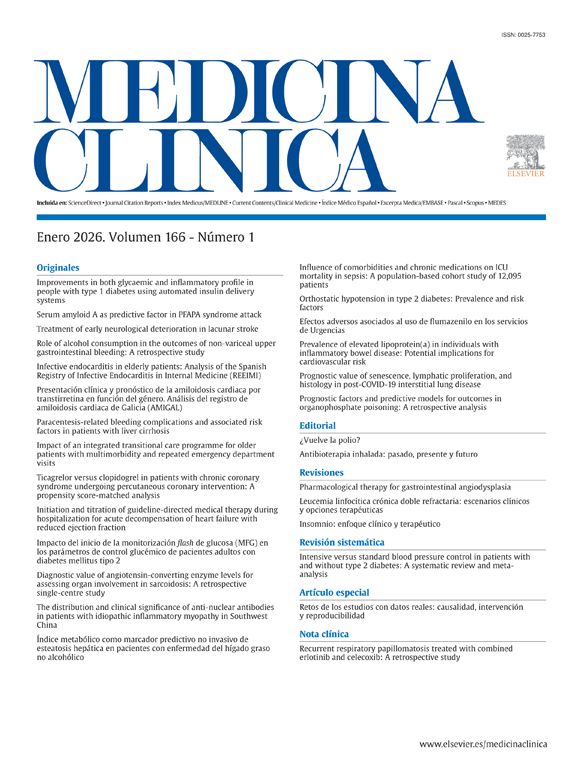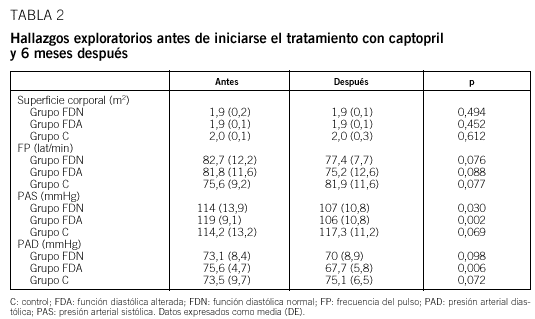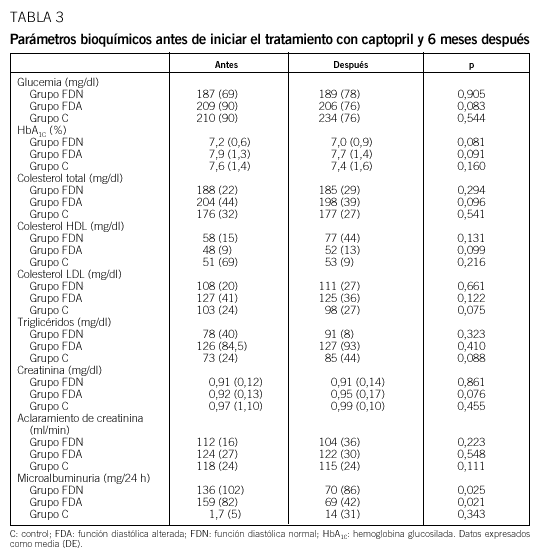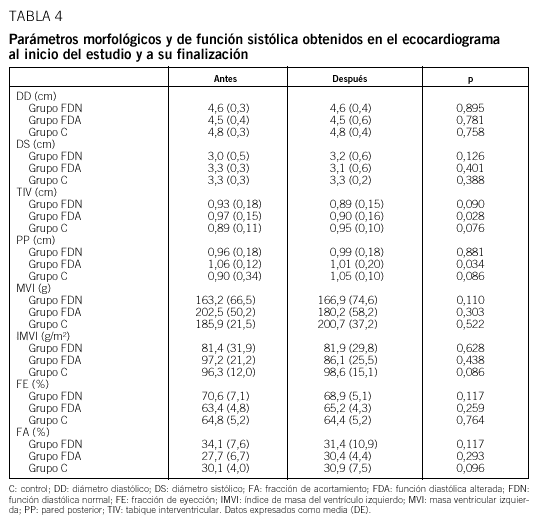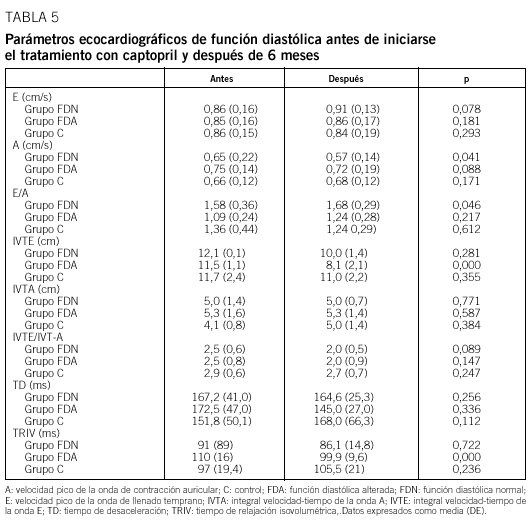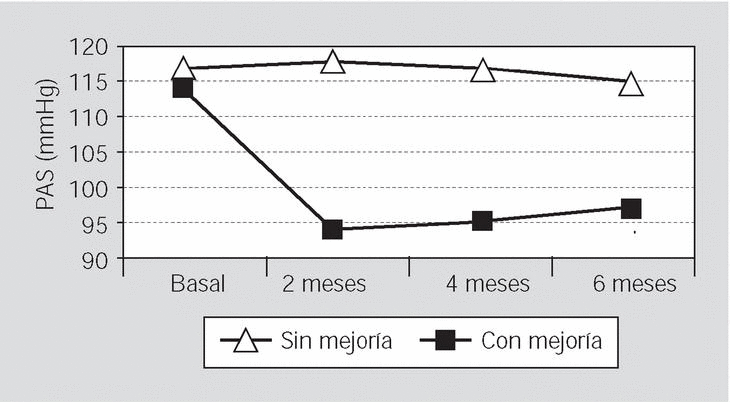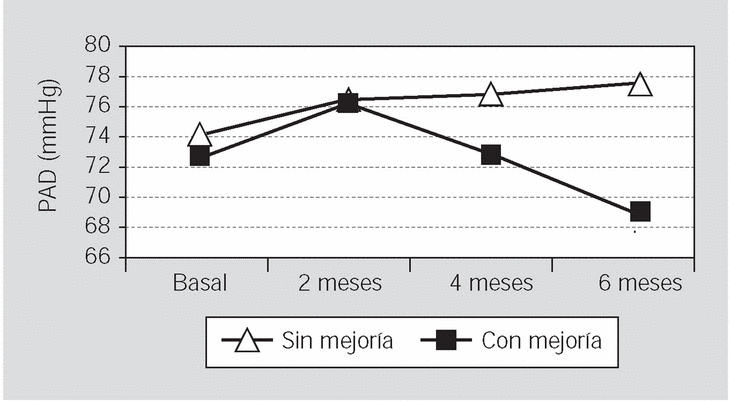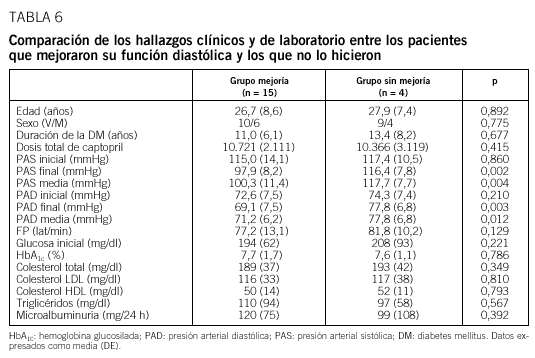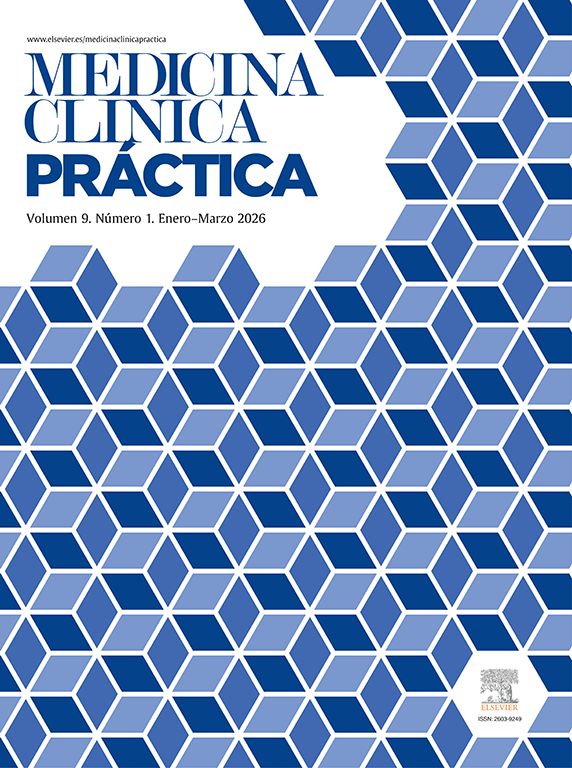Background: Diabetic cardiomyopathy (DMC) is a complication of diabetes mellitus (DM) that is more frecuently observed in those patiens with microalbuminuria. Left ventricular diastolic dysfunction (LVDD) in patients with diabetes, in absence of another etiology that justifies it, is an early marker of DMC. We carried out a prospective study on young diabetic type 1 patiens with microalbumiuria, aimed at knowing the effect of captopril on LVDD.
Patients and method: We included 30 patients (18 males and 12 females) diagnosed with type 1 DM, aged ¾ 40 years old, who had been recently found to have microalbumiuria and thus they were candidates to receive captopril. We excluded patients having factors different from DM that could modify the diastolic function. All patients underwent a complete biochemical and echocardiographic study before starting the treatment with captopril and six months later. A diagnosis of LVDD was made when at least one of the following parameters was present in the echocardiographic study: isovolumetric relaxing time (IRT) > 100 ms, deceleration time (DT) > 220 ms or early filling rate peak/late filling rate peak ratio (E/A) < 1. According to the results of the second echocardiogram, patients were classified in two groups: improved group (when there was at least a 10% improvement of initial LVDD altered parameters) and non-improved group. A control gruop of 28 type 1 diabetic patients without microalbuminuria who were not given captopril was included (group C).
Results: The initial echocardiographic study yielded 11 patients having a normal diastolic function (group FDN) and 19 patients having LVDD (group FDA). After 6 moths of captopril treatment, an improvement of the ratio E/A was observed in the group FDN: from 1.58 (0.36) in the beginning to 1,68 (0.29) six moths later (p < 0.05), and in the group FDA: from 1.09 (0.24) to 1.24 (0.28) (p < 0.05). In the group FDA, an improvement of IRT was found: from 110 (16) ms to 99.9 (9.6) ms (p < 0.01). Moreover, in the group FDA, LVDD improved after sixth months in 15 (78.9%) patients but not in 4 (21,6%). This LVDD improvement was associated with a decrease of the diastolic blood pressure (DBP) and the systolic blood pressure (SBP) at the end of the study. A logistic regression analysis showed an independent association between the reduction of the mean SBP and the improvement of LVDD.
Conclusion: Our results suggest that captopril can improve LVDD in young patients with type 1 diabetes and microalbuminuria, possibly due to a decrease of blood presure.



